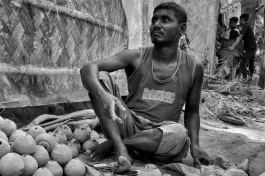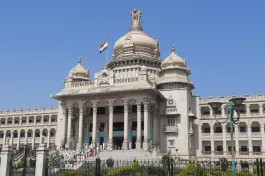In 2022, Prime Minister Narendra Modi advised his Bharatiya Janata Party (BJP) to connect with the Muslim community, especially the Pasmandas (backward caste and ‘untouchable’ Muslims), through “Sneh Yatras” and other outreach initiatives. The BJP’s Minority Morcha has since then organised events for Pasmanda Muslims and launched a campaign to enrol Muslim ‘Modi Mitras’ (Friends of Modi) to promote governmental welfare schemes in several Muslim-majority parliamentary constituencies across the country.
These intriguing outreach initiatives have triggered a debate amongst the media, the Muslim public sphere, and the national communicative space. The persistent image of the BJP is of an elite, upper caste and class party which has been against Islam and Muslims. Yet, through these outreach initiatives, the BJP is trying to create a parallel order of Pasmanda leadership on the one hand and recruit Pasmanda citizens in the BJP-affiliated Rashtrawadi Muslim Pasmanda Mahaz and into the body politic of Hindutva on the other. It can instrumentalise Pasmandas in its pursuit of political power in India and project a Muslim-friendly image of itself for circulation in the international arena.
The BJP is trying to create a parallel order of Pasmanda leadership [...] and recruit Pasmanda citizens [...] into the body politic of Hindutva.
The BJP’s sustained efforts have led to the division of Pasmanda influencers and political workers into pro-Hindutva and anti-Hindutva camps. The growing visibility of pro-Hindutva Pasmanda influencers in media talk and their increasing interventions on social media platforms served as a trigger for Ali Anwar to respond to the evolving landscape of Pasmanda discourse and activism.
A Hindi journalist-turned social activist-turned politician, Anwar represented the Janata Dal (United) in the Rajya Sabha between 2006 and 2017. His criticism of the party’s decision to break an alliance with the Rashtriya Janata Dal and join hands with the BJP in Bihar led to his expulsion from the Rajya Sabha in 2017. Anwar is also the founder of the All India Pasmanda Muslim Mahaz (AIPMM), which works for fair representation of Pasmanda Muslims in state and community institutions. The Mahaz has challenged the hegemonic dominance of Ashraf Muslims over the social and symbolic resources of the community and the nation.
In two open letters in 2022 – one addressed to Modi and the other to the leaders of opposition parties – Anwar questioned the intention and sincerity of BJP’s Pasmanda outreach initiatives. The letters emphasise that the Pasmanda Muslims want sammaan (equality and dignity), not sneh (affection). These letters, part of the content of Sampoorn Dalit Andolan: Pasmanda Tasawwur, labelled the Sneh Yatras as tokenistic, part of BJP’s vote bank politics, and as efforts to pit Muslims against one another.
At the heart of the Pasmanda discourse is its understanding of hierarchy and discrimination in Muslim society.
Pasmanda Tasawwur came almost a quarter century after the publication of Anwar’s first monograph Masawat Ki Jung (‘The Battle for Equality’, 2001). As the first systematic exposition of Pasmanda discourse, Masawat was well received in academic circles and the wider Hindi public sphere. Pasmanda Tasawwur updates this discourse to reflect on the challenges that the Pasmanda communities face due to the reconfigured political and social relations in 'New India'.
Caste in Islam
'Pasmanda' is an umbrella term which denotes lower-caste Muslims: the Ajlaf (Shudra or Other Backward Caste Muslims) and the Arzal (Ati-Shudra or Schedule Caste or Dalit Muslims). It can be understood as an Urdu equivalent of the English word ‘backward’ and the Hindi word ‘pichhda’.
At the heart of the Pasmanda discourse is its understanding of hierarchy and discrimination in Muslim society. It questions the view that a caste-based system of social hierarchy and discrimination took roots in Islam (and Christianity) in India only when they came into contact with Hinduism. Rather, it asserts that social hierarchy and discrimination has “definitely been part of everyday practice in lived Islam and Christianity because to hierarchize and discriminate is human nature.”
Anwar notes that all three terms that signify hierarchy in Muslim society — Ashraf (the elite), Ajlaf (the middle classes) and Arzal (the lowly classes) —are words of Arabic origin. He poses a rhetorical question that if “this social problem was not present in the Arab society, where did these three words in the Arabic language come from?” to argue that an ideological infrastructure of hierarchy and discrimination was part of the society in Arabia, the birthplace of Islam. (Notably, the incidence of inter-caste marriages amongst Indian Muslims is less than 1 percent, despite no prohibitions in Islam.)
The formation of AIPMM in 1998 emblematised the churn Muslim society was going through in the 1990s. The interaction between the three M's – Mandal, Mandir, Market – formed the social and political milieu. These three allude to the implementation of the recommendations of the Mandal Commission in 1992 for affirmative action for Other Backward Classes (OBCs) in higher education and employment in the public sector, the Ayodhya movement to demolish the Babri mosque and construct a Ram temple, and the liberalisation of Indian economy.
Anwar imagines the Pasmanda movement as a part of the Dalit-Bahujan movement and argues that the latter remains incomplete without including the “Pasmanda-tareen” (Arzal) in its fold.
The pitch for Pasmanda-Dalit-Bahujan solidarity is unmistakable right from the title of Anwar’s book. 'Sampoorn Dalit Andolan: Pasmanda Tasawwur' emphasises the complementary nature of the relationship between the Pasmanda movement and the Dalit movement. Anwar imagines the Pasmanda movement as a part of the Dalit-Bahujan movement and argues that the latter remains incomplete without including the “Pasmanda-tareen” (Arzal) in its fold. This is a new term which he has coined to denote Dalit Muslims. Further, he underlines that all religions have a section of population which can be termed as Dalits because the pains that they suffer from are identical.
Anwar observes that “Today the term ‘Dalit’ has come to signify the oppressed and untouchable people from all religions.” He presents a “religion-neutral” and “caste-neutral” conception of both Dalit and Pasmanda. People from all religions “who have been or continue to be oppressed” in the social, educational, economic, political, and ethical spheres, can be designated as Pasmanda. Anwar conceptualises solidarity amongst the backward and ‘untouchable’ castes across all religions, i.e., Pasmanda-Dalit-Bahujan solidarity, as an antidote to communal polarisation. The feeling of pain that Dalit sections from Hindu and Muslim communities share can work as a social glue and provide “a solid basis for the unity among the weaker sections” of both religions. “If nurtured well, this unity will strike at the root of communalism.”
In British India, Scheduled Castes of all religions were entitled to reservations in public employment. In Independent India, Article 341(1) of the Constitution has been used to restrict such reservations to Dalit Hindus, Sikhs and Buddhists. The AIPMM has demanded amendments in the article so that caste-based occupational groups that constitute the category of Dalit Muslims and Dalit Christians should get the benefits and services which their Hindu counterparts are entitled to. In Pasmanda Tasawwur, Anwar reiterates these demands and also calls for the overall reservation for Scheduled Castes should be increased simultaneously, to avoid any shrinkage in the share of Dalit Hindus. He also advocates for a caste-census, to get better data for implementing reservations.
A delegation of Muslim parliamentarians ridiculed Anwar’s suggestion to raise the issue of reservations for Dalit Muslims and Dalit Christians.
Anwar criticises the traditional Muslim leadership – exclusively comprising Ashraf Muslims – for never using parliamentary means and their influence during the governments of the United Progressive Alliance (2004-2014) to press the case for expanding reservations. He narrates how a delegation of Muslim parliamentarians ridiculed Anwar’s suggestion to raise the issue of reservations for Dalit Muslims and Dalit Christians in a memorandum to then Prime Minister Manmohan Singh.
The AIPMM has maintained an uncompromising position on the question of communalism and a conception of affirmative action that is based on religion and economic backwardness, including in its criticism of the Ranganath Misra-headed National Commission for Religious and Linguistic Minorities (2005–2007). Religion as the basis for identifying social groups worthy of reservation and welfare measures was “not only un-constitutional but incurably un-constitutional” and would adversely affect the rights of Pasmanda Muslims, the AIPMM argued.
A united front
The rise of Modi – the fourth ‘M’ after the three of the 1990s – has put Pasmanda Muslims in an unprecedented precarious situation. “Through its shrewd moves, BJP is dividing the OBCs in the name of empowerment. Simultaneously, politicians like [the All India Majlis-e-Ittehadul Muslimeen leader Asaduddin] Owaisi are playing Jinnah and misleading Muslims.” Opposition parties have been silent, either under fear from the BJP or under the impression that Pasmandas have no political alternatives. Anwar locates the Pasmanda discourse at in the midst of a broad critique of the neo-liberal economy, growing illiberalism and polarisation, and the evolving anti-democracy ethno-majoritarian populist political culture in the country.
He also offers hope: “Today all constitutional institutions are visibly eclipsed. The Indian constitution and democracy are in danger. Hence, the unity of Dalits-Backwards, peasants, workers, students, youth and all justice and freedom-loving persons is required.”
Arshad Amanullah is a fellow at Nehru Memorial Museum and Library, New Delhi. His PhD dissertation (National University of Singapore, 2022) was on news production practices in Muslim-oriented media outlets in India.









